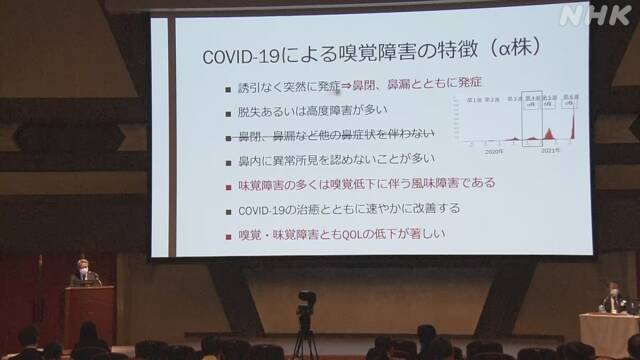A symposium on the sequelae of the new corona was held, and the representative of the research group who investigated the abnormalities of the sense of smell that do not smell is that more than 10% of the people had abnormalities even six months after the infection, and there is a possibility that the number of Omicron strains will increase in the future. I pointed out that there is.
The symposium was held at the Japanese Respiratory Society held in Kyoto.
Among the sequelae, Professor Takaki Miwa of Kanazawa Medical University, who was the representative of the national research group, was hospitalized for three months until May last year when the alpha strain of the mutant virus spread. As a result of examining 207 people in their 20s to 50s, it was reported that 24 people, which was 12%, had an abnormality in the sense of smell even after half a year.
The breakdown was 16 women, two-thirds, and 17 people in their 40s or older by age group, and there were many cases where the smell was different from the actual one.
Professor Miwa pointed out, "Middle-aged women may be protracted. It is said that the rate of olfactory dysfunction is low in the Omicron strain, but since there are many patients, it may increase in the future."
In addition, Assistant Professor Kazushi Takamatsu of Kochi University reported in a questionnaire survey of people with moderate or higher illness that 9.8% of the 693 people answered that they had some symptoms even one year after discharge. ..
7.4% answered that they had weak muscles and 4.4% said that they had difficulty breathing, so they said, "It is thought that it is related to the severity of corona, and I would like to continue the analysis."

